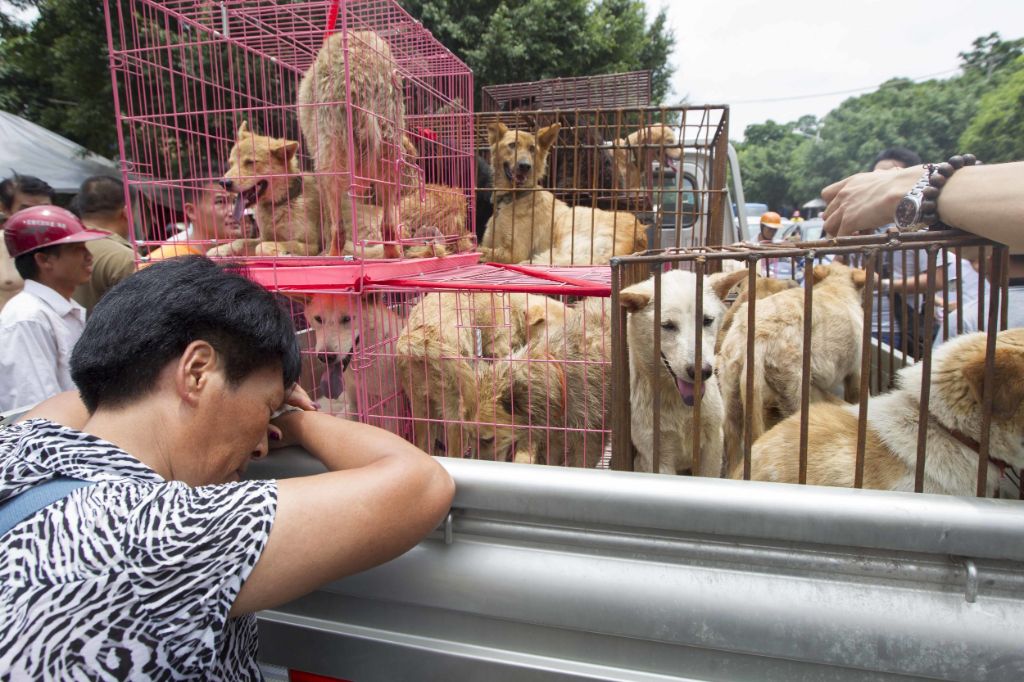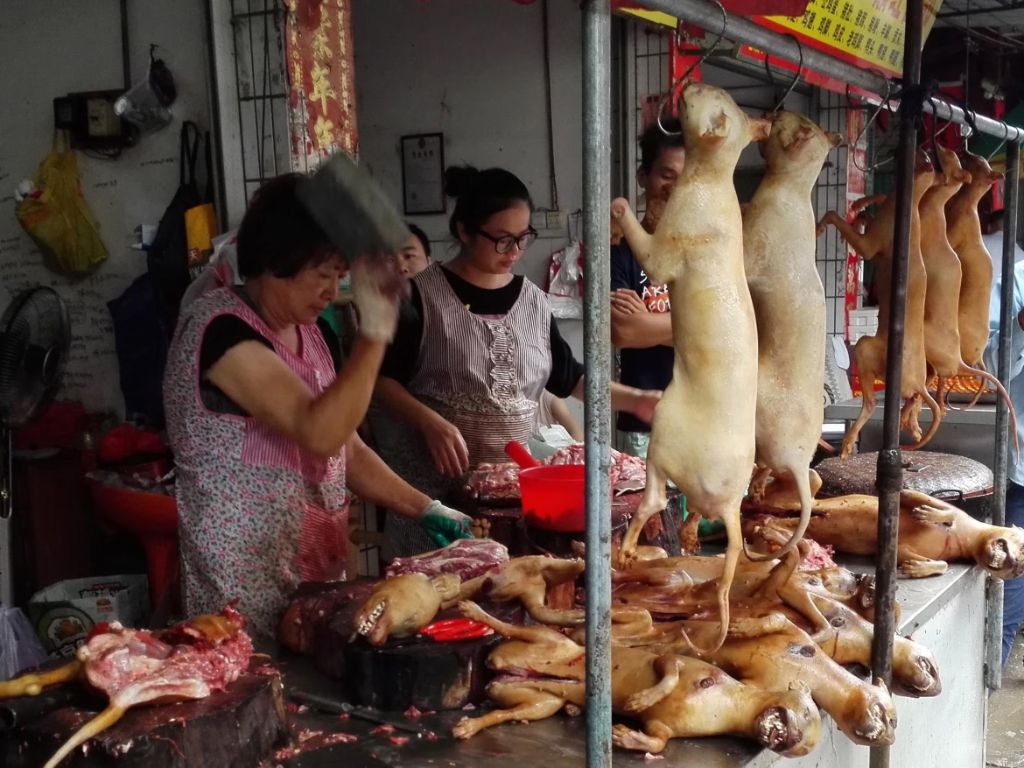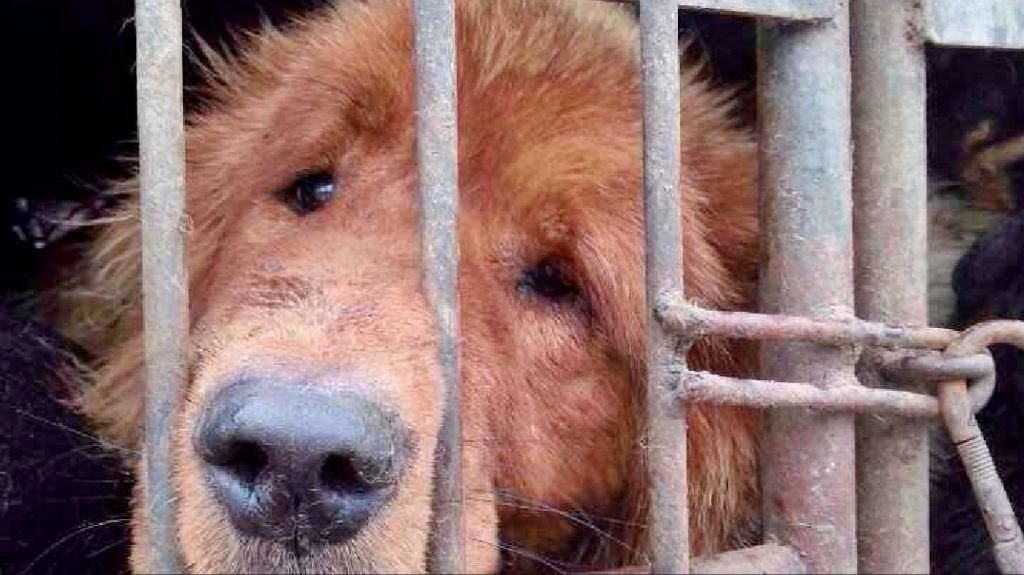Introduction
The Yulin Lychee and Dog Meat Festival is an annual festival held in Yulin, Guangxi, China during the summer solstice in June. The 10-day festival is centered around the eating of dog meat and lychees, though the primary focus is on dog meat.
While the eating of dog meat has a long history in parts of China, the Yulin festival itself is relatively new. The festival began in 2009 or 2010 to celebrate the summer solstice local lychee and dog meat consumption (https://www.duoduoproject.org/post/origins-of-the-yulin-festival-in-china). Since then, it has grown in size but also attracted increasing controversy regarding the welfare of dogs slaughtered for the festival.
Origins
The Yulin Dog Meat Festival originated in Yulin, Guangxi, China. According to the Duo Duo Project, an animal welfare organization, the festival began in 2009 and is held annually on the summer solstice around June 21st [1]. The festival spans approximately 10 days during which thousands of dogs are consumed, many of whom are allegedly stolen pets [2].

The festival was started by local dog meat traders as a commercial enterprise to boost sales of dog meat and lychees. The consumption of dog meat and lychees during the summer solstice is considered by some in China to bring health benefits and good fortune [3].
Early Years
The Yulin Lychee and Dog Meat Festival began in 2009 in Yulin, Guangxi, China. According to some reports, the festival was started by dog meat traders as a way to boost sales during the slow season when the lychee fruit is ripe (1). In the early years of the festival, it was small in scale with estimates of 10,000-15,000 dogs slaughtered annually (2).
One account suggests that in 2010, the local Yulin government distanced itself from the festival, emphasizing that it was sponsored by private businesses rather than the state. Some officials were reported as saying the festival “damaged the city’s image” (1).
During the early festivals, dogs were often transported in tightly packed cages on the backs of motorcycles and trucks from as far away as Anhui and Sichuan provinces. Many arrived severely dehydrated and malnourished to Yulin’s slaughterhouses (2).
Sources:
(1) https://en.wikipedia.org/wiki/Lychee_and_Dog_Meat_Festival
(2) https://www.duoduoproject.org/post/origins-of-the-yulin-festival-in-china
Growth
The Yulin Dog Meat Festival grew rapidly in scale and prominence in the early years after its inception in 2009. According to the Lychee and Dog Meat Festival Wikipedia page, the festival began on a small scale with only a few dozen vendors and has grown to include thousands of dogs being slaughtered and consumed each year. The festival spans about 10 days in the city of Yulin and has attracted vendors and visitors from outside the area as word spread and media coverage increased.
One source indicates that in 2014, it was estimated around 10,000 dogs were killed for the festival, up significantly from just a couple thousand when it started. The rapid growth is attributed to the regional government promoting the festival to attract tourism revenue. Vendors have capitalized on the increased attention, importing dogs from other provinces to meet demand. According to this article, over the 11 years since inception, the festival went from being a small local event to a major attraction drawing international condemnation and activism aimed at stopping it.
Recent Years
In recent years, the Yulin Dog Meat Festival has generated significant controversy and opposition, though estimates suggest it continues on a massive scale. According to a 2022 article by Newsweek, when the festival launched over a decade ago, an estimated 10,000-plus dogs were slaughtered during its core days. https://www.newsweek.com/yulin-dog-meat-festival-2022-when-why-held-what-happens-china-1714753
However, the Duo Duo Project, an animal welfare organization, believes the number has decreased in recent years to a little under 3,000 dogs, though this is still a substantial amount. They cite tighter regulations and increased activism as contributing factors to the decline. https://www.duoduoproject.org/post/origins-of-the-yulin-festival-in-china
So while the festival persists on a large scale, continued opposition and activism have likely helped curb the total number of dogs slaughtered compared to its peak over a decade ago.
Controversy

The Yulin Dog Meat Festival has been mired in controversy since its inception, primarily from animal welfare activists. Many consider the methods used to slaughter dogs inhumane, with reports that dogs are sometimes beaten to death in front of each other (Wikipedia, 2022). Activists have reported unsanitary conditions and inhumane methods of slaughter using blows to the head at the festival (Independent, 2022).
The festival has thus faced significant opposition and protests from Chinese and international activists. In recent years, protests have been held in Yulin as well as cities around the world to raise awareness and call for the banning of the festival. Major protests occurred in 2013, 2014 and 2015, with clashes between vendors and activists (Wikipedia, 2022). While the protests have not yet succeeded in shutting down the festival, they have brought significant negative attention to the event.
Activists argue that the methods of slaughter and conditions at the festival do not align with regulations for legal livestock in China. Dogs are not classified as legal livestock, yet are still killed for their meat (Newsweek, 2022). The controversy around the festival continues to grow as animal welfare concerns gain more attention globally.
Support
The Yulin Dog Meat Festival has supporters who believe it is an important part of their regional culture and culinary tradition. Some key groups that support the festival include:

Local government officials – The Yulin city government has officially endorsed the festival as part of the region’s cultural heritage. They see the festival as important for the local economy and tourism. The local officials have resisted campaigns to shut down the festival.
Vendors and businesses – The dog meat trade in Yulin provides income for a number of vendors, butchers, and restaurants in the area. The festival is a boon for their business, so many of them support its continuation. They argue it is their livelihood.
Some consumers – There is a segment of Chinese consumers who view dog meat as a traditional food and believe they should have the right to eat it. They see the opposition to the festival as an attack on their culture and culinary traditions.
According to this article, supporters of the festival believe it provides an economic boost and preserves cultural heritage. They resist outside pressure to end it.
Opposition
Many groups have voiced strong opposition to the Yulin Dog Meat Festival over the years. According to the Humane Society International (source), they have campaigned tirelessly for years against the festival, saying the cruelty and risks involved give China a bad image. The Asia Canine Protection Alliance has also been outspoken, starting petitions and protests to stop the festival (source). Many other animal welfare groups, both within China and abroad, have called for an end to the event. On the government side, some Chinese politicians have condemned the festival, while the U.S. House of Representatives passed a resolution in 2017 urging China to ban the dog meat trade (source).
Cultural Significance
The Yulin Dog Meat Festival plays an important role in the local culture and economy of Yulin. Though controversial, it is an annual tradition that dates back hundreds of years. According to local vendors, eating dog meat in the summer months is considered lucky and healthy according to Chinese folklore and tradition. As a result, the festival is hugely popular in Yulin and the surrounding region.
The dog meat trade in Yulin provides an estimated $19 million boost to the local economy each year during the festival. Over 10,000 dogs are slaughtered and eaten during the event. For many vendors, the festival represents their main source of annual income and livelihood. Without the festival, some have argued the local economy would suffer significant losses.
Despite international criticism, local officials have promoted the festival as part of Yulin’s cultural heritage and identity. In their view, banning the festival would amount to an attack on long-held customs and beliefs. However, animal welfare activists counter that culture should not be an excuse for animal cruelty.
Though the future of the festival remains uncertain, its significance locally cannot be denied. For better or worse, it remains an ingrained part of Yulin’s cultural fabric with deep economic and social importance for many residents.
Future
The future of the Yulin Dog Meat Festival remains uncertain, as animal rights activists continue to push for an end to the event while supporters argue it is an important cultural tradition. Some key points regarding potential changes ahead:
The Yulin government has stated the festival is not an official event and does not have government backing, leaving room for it to potentially decline or be banned in coming years if public pressure continues to mount. However, no clear plans are in place yet for ending the festival.

Recent surveys have shown waning public support in Yulin itself for the festival, with over 70% of residents saying banning dog meat would not impact their lives. This suggests growing opposition to the event locally.
High-profile activism and global petitions, along with increasing media coverage, have drawn international condemnation of the festival. The public relations damage and threat of boycotts may motivate authorities to take action on banning it.
China has considered banning the dog meat trade overall due to concerns over animal cruelty and the spread of disease. If legislation progresses at the national level, it could effectively end the Yulin festival’s dog meat consumption.
Despite activist calls to immediately shut down the festival, a gradual phasing out appears more likely in the near term. But sustained pressure could see Yulin 2023 shut down, with the event slowly dying out in subsequent years.